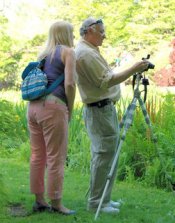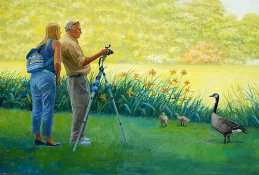removed account4
Subscriber
- Joined
- Jun 21, 2003
- Messages
- 29,832
- Format
- Hybrid
even straight forward documentary photography isn't really what's there.
while it can be called evidence or and artifact it isn't, its just an illusion, a reflection, a light-shadow.
its not the kind of illusion that vanishes ( but it really is ) it can't reappear
somewhere else ( but it can ) and it is more based in "reality" than painting and drawing
( not really ) ... color negatives or diapositives aren't true to life, black and white images even less
with the ephemeral quality the materials we are all fooling ourselves with it all just like chalk on the sidewalk ?
what do you do with the illusions you make, and do you even suggest that they might not be "real"
while it can be called evidence or and artifact it isn't, its just an illusion, a reflection, a light-shadow.
its not the kind of illusion that vanishes ( but it really is ) it can't reappear
somewhere else ( but it can ) and it is more based in "reality" than painting and drawing
( not really ) ... color negatives or diapositives aren't true to life, black and white images even less
with the ephemeral quality the materials we are all fooling ourselves with it all just like chalk on the sidewalk ?
what do you do with the illusions you make, and do you even suggest that they might not be "real"







 .
.